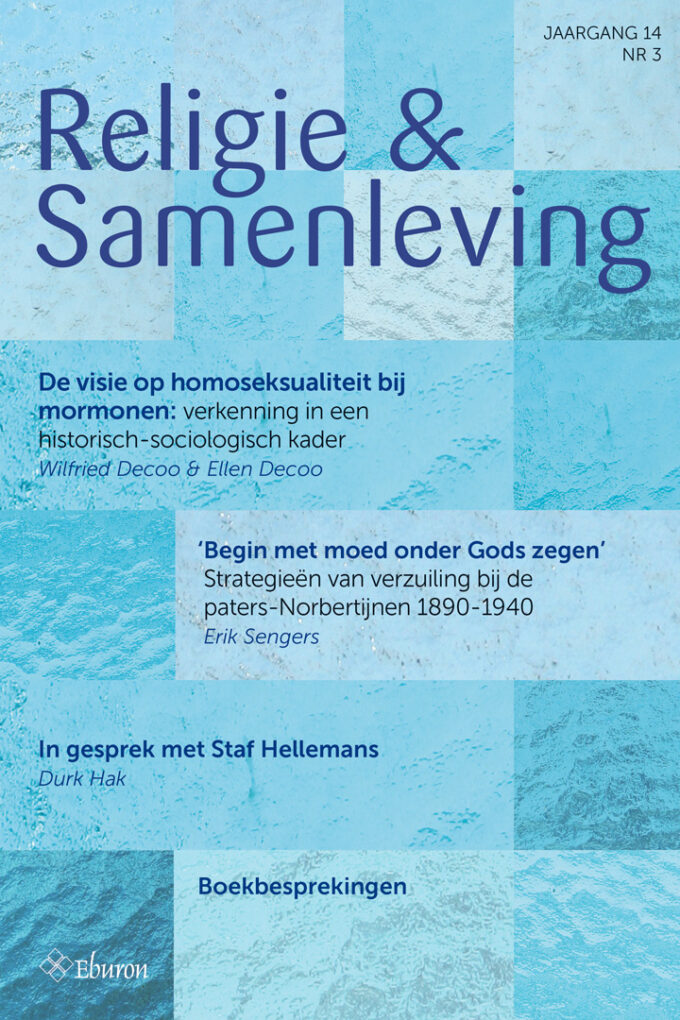De visie op homoseksualiteit bij mormonen
Verkenning in een historisch-sociologisch kader
DOI:
https://doi.org/10.54195/RS.11564Samenvatting
The Church of Jesus Christ of Latter-day Saints, commonly known as LDS Church or Mormon Church, typifies a conservative Christian branch that has been moving through phases in its views on homosexuality. We apply a historical-sociological framework, valid for most of Christianity, to identify how Mormon church leaders shifted from ambiguous tolerance to condemnation of homosexuality. A moral-theological rationale grew only afterwards. Individual church leaders determined the tone which morphed from homophobic to empathetic rhetoric with the nurture-nature debate, the fight against same-sex marriage, and the drama of teen suicides as backdrop. For Mormon gays and lesbians the present doctrine requires them to sacrifice their sexual identity in order to earn social inclusiveness and a promise of salvation. In a broader context of the development of newer religions, Mormonism wants to profile itself as a full-fledged church with both strong principles and Christian charisma, thus trying to shed a historically marginal heritage.




